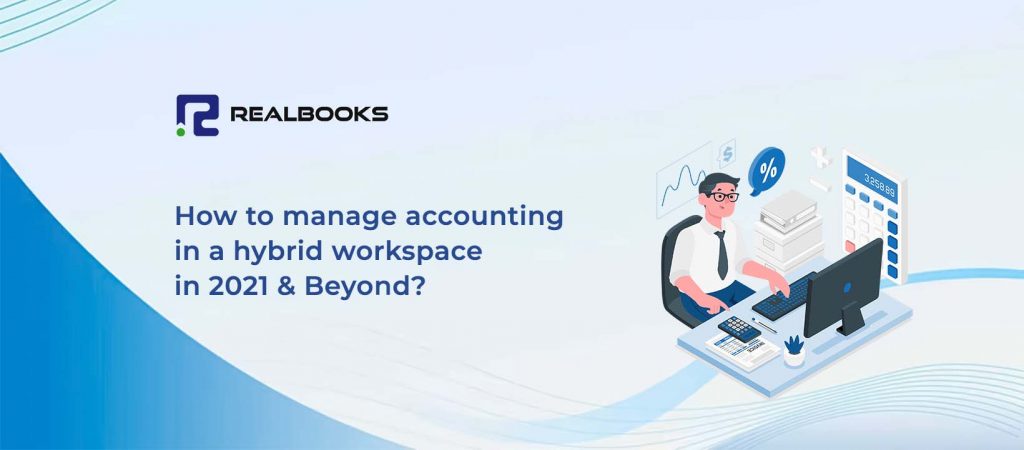Due to the pandemic, people have found ways to collaborate in a geographically decentralized manner.
Evidently, work-from-home has become a culture. It also opened our eyes to the fact that the majority of the tasks don’t really require the need to be in the workplace.
With proper tools and software in place, a handful of tasks can be done online from anywhere. And in almost all cases, work-from-home has proven to be a lot more productive than in-office work.
Many studies have been carried out around this question. They have found that employees now desire to spend nearly equal amounts of time in three sorts of settings after COVID-19: corporate offices, their homes, and other surroundings such as co-working spaces or cafes.
And it’s not too demanding of your employees to choose hybrid working. The hybrid model boosts productivity and engagement while also lowering real estate expenses and assisting in attracting and retaining talent.
A win-win situation for both employees and businesses!
So it becomes imperative for business owners to adopt the hybrid model in which their employees split their time
between the office and working from home.
And this working model can be executed in two ways:
- Splitting your workers into 2 groups where one group works in-office and the other, from home.
- Individuals will have to spend say, 3 days in-office and 2 days at home.
How to factor? Operations in the hybrid accounting model
Accounting operations have seen a great evolution in the last two decades. More so in the last one. From books to spreadsheets to desktop software to the cloud, accounting has come a long way. So, accounting in-office has become very easy and hassle-free over the years.
Until the pandemic when it came to work-from-home, the question arose that how would account operations be carried out.
The accounts of your business are the most important and in the wrong hands, they would create a crisis.
Streamlining accounting operations into one center is hard in a decentralized workspace. Switching to a convenient accounting solution has become more than important.
While your in-office desktop accounting software might give you various features that make accounting easy, it lacks the comfort of accessibility.
That’s where cloud accounting comes in. Cloud accounting is a boon to businesses in this pandemic-struck time.
How does cloud accounting help in a hybrid work model?
1. Branch Accounting
A benefit that cloud accounting software provides is a multi-user collaborative workspace. Some cloud accounting software provides the feature of branch accounting that records inter-branch entries in real-time. So, this feature can be really helpful in a hybrid workspace for companies with multiple branches. Especially in the audit season when you need to monitor all the transactions.
2. Online Documentation
Your accountants can upload entries, documents, and supporting records and create reports in a matter of minutes using cloud-based software. Such digital documentation will help in saving time and reduce the scope of errors.
3. Remote access
The advantage of online space is that, unlike the static infrastructure of an office PC, it can be accessed by anybody with authorized access at any time and from any location. Cloud accounting software provides a consolidated database accessible over the internet 24 hours a day, seven days a week.
So, in case, your accounting personnel is working from home and a worker from your factory wants to take a look at your inventory report, they can do so through that database after they are authorized to access it.
4. OS and mobile accessibility
Imagine this- your accountants are working from home and you are at the moment, traveling somewhere and are not in the same vicinity as your office. An emergency arises with a client and you need to take a look at your financial reports. What would I like to do in that scenario?
Send a quick message to your accountants to forward the report ASAP and wait for them to do so or Would you like to just open the file on your own phone?
Of course, you are inclined to the second option.
Some cloud accounting software is accessible on various operating systems and mobile phones.
5. Safety
As mentioned earlier, accounting reports are vulnerable, and maintaining integrity becomes difficult in a decentralized workspace. Cloud accounting software is hosted on safe web hosts which have multiple level backups and give restricted access to users to maintain safety.
To sum it up, hybrid working is the future, and streamlining all your activities favoring it is important. Accounting will never fail to be of prime importance. So, switching to ever-evolving solutions becomes equally important. Investing in cloud accounting software is the need of the hour as it not only assists in recording entries, but also other aspects like inventory, payroll, and taxation.
Look no further for the aforementioned cloud features. This online accounting software has got your back in this hybrid work environment!
It can make the transition to hybrid working much easier and makes it convenient for both in-office and work-from-home accounting.

